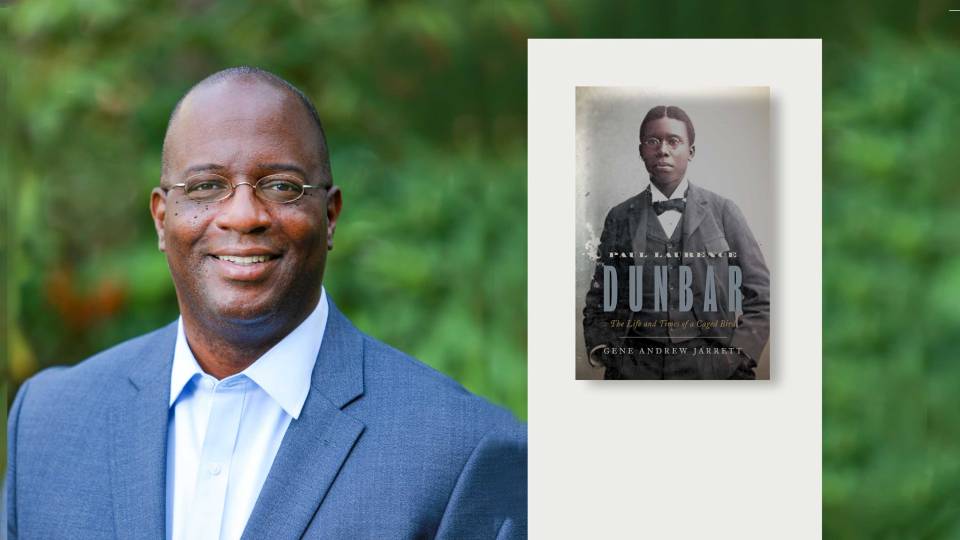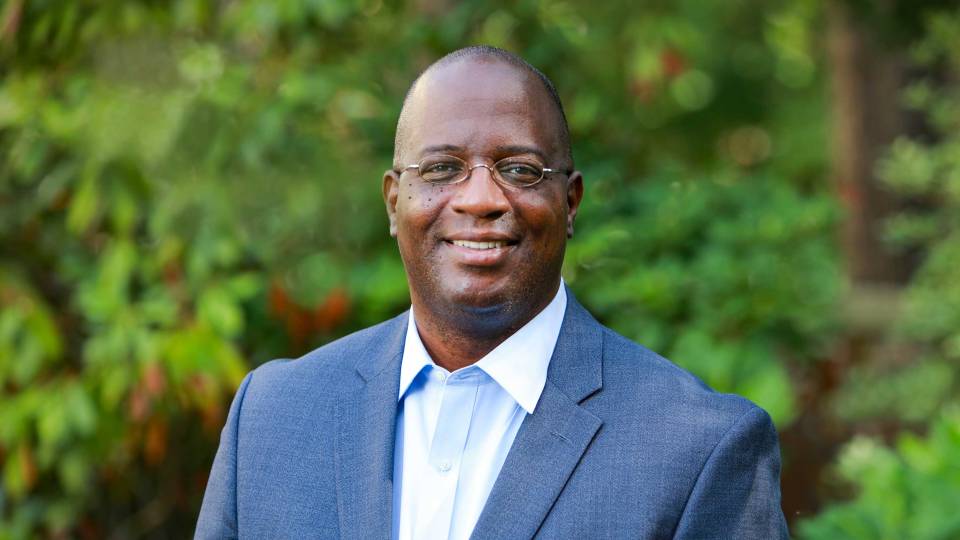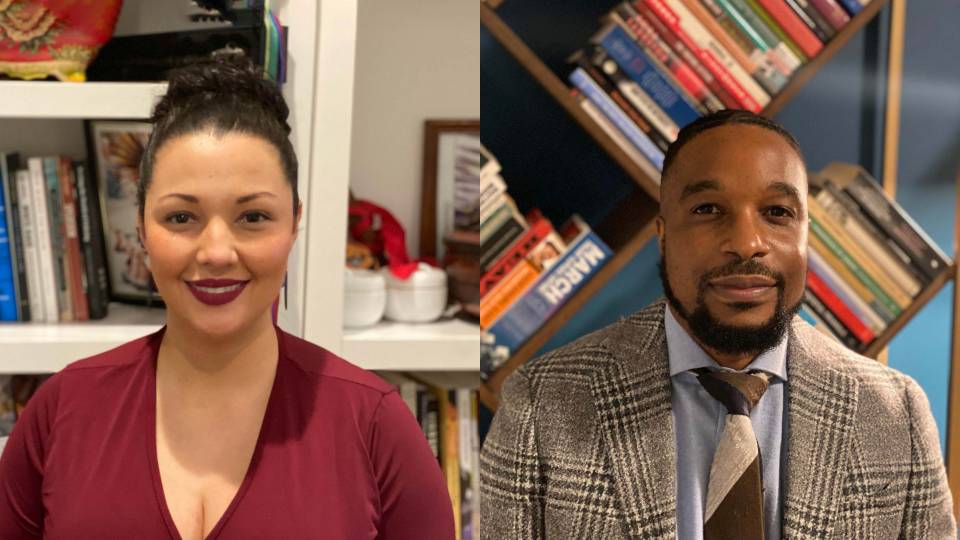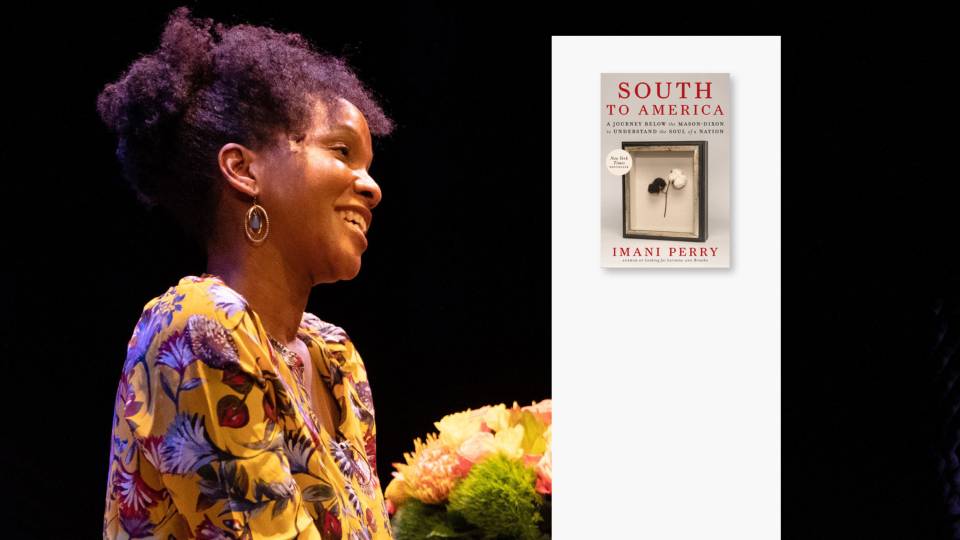In his biography “Paul Laurence Dunbar: The Life and Times of a Caged Bird,” selected as one of The New Yorker’s best books of 2022, Dean of the Faculty Gene Jarrett illuminates the complexities of Dunbar’s rise to prominence in the Gilded Age.
Jarrett, the William S. Tod Professor of English and a 1997 Princeton graduate, has also taught about Dunbar in the classroom for two decades and published book articles and chapters on the popular and accomplished writer.
Here, Jarrett offers reflections and insights on Black History Month, along with recommended readings and film. Below that is a list of University events this month for learning and discovery, including a book talk Feb. 27 with Jarrett. Read a book Q&A with Jarrett online.
What are your thoughts on the continued necessity and vitality of Black History Month as a commemoration and reminder to expand our knowledge?
I share the views of my previous Princeton colleagues who remarked in 2022 and 2023 that Black History Month is a valuable annual tradition for celebrating the legacy of African American contributions to the United States and the broader world.
But the nationwide celebration of African American history only during the month of February risks neglecting the other months of the year that were equally, if not more, historic for African Americans. Every month should afford an appreciation of African American history.
“Black History” deserves appreciation in the widest sense: the term, in its current usage this month, commemorates the extraordinary people, for example, who have inspired us and stimulated our imagination. Yet the term should also refer to people whose names and achievements still await illumination in the annals of history, and whose accomplishments may not necessarily be “Black.”
I developed this opinion very early in my academic career — indeed, as a student at Princeton — from Toni Morrison, the Robert F. Goheen Professor in the Humanities, Emeritus. In her 1988 lecture “Unspeakable Things Unspoken: The Afro-American Presence in American Literature” and her 1992 book “Playing in the Dark: Whiteness and the Literary Imagination,” she was critical of American society’s cultural essentialism and commercial rewarding of racial stereotypes. These two works pedagogically framed a Spring 1996 course she taught at Princeton, titled “Studies in American Africanism.”
Fortunately, I was a student in this course, which turned out to inspire my English department junior thesis that semester and, after Princeton, my doctoral dissertation at Brown University, both of which culminated in my first monograph, “Deans and Truants: Race and Realism in African American Literature.” Here and elsewhere, I consistently argue that notions of “Black History” should highlight not only the cultural expressions of perceived quintessential African American experiences. We should also treasure the writers, the classical musicians, the opera singers, the scientists, the mathematicians, the ballerinas, and so forth, who are African American but whose artistic or intellectual efforts have not necessarily been marked, or marketed, as “Black.” All African Americans who have contributed to the legacy of human excellence in the United States and the world deserve our collective praise, in my view.
Help us zero in on what we might read and watch right now.
Read: “The Value of Race Literature,” an address delivered in 1895 by author and civil rights activist Victoria Earle Matthews at the First Congress of Colored Women of the United States. The address is reprinted as an essay in a 2008 book Henry Louis Gates Jr. and I coedited: “The New Negro: Readings of Race, Representation, and African American Culture, 1892-1938."
Remarkably, Matthews’s address defines “Race Literature” as “all the writings emanating from a distinct class — not necessarily race matter; but a general collection of what has been written by the men and women of that Race.” She appreciates Black-authored literature not only because it features “race matter,” or themes focused on African American society and culture. Fundamentally, she celebrates this literature — such as “History, Biographies, Scientific Treatises, Sermons, Addresses, Novels, Poems, Books of Travel, miscellaneous essays and the contributions” — mostly for having come from the direct hands of African Americans. Matthews widens our sense of the diversity and impact of African American intellectual achievement.
Read: “Black Lives 1900: W.E.B. Du Bois at the Paris Exposition.” This is a vivid compendium of the photographs, illustrations, maps and charts that famed sociologist and civil rights leader W.E.B. Du Bois had exhibited at the Exposition Universelle in Paris, France, from April 15 to Nov. 12, 1900. Depicting the variety and complexity of African American lives across the United States, this collection is remarkable for capturing the beauty, dignity and resolve of “ordinary” African Americans at the turn of the 20th century.
Read and watch: I propose the pairing of Percival Everett’s inquisitive novel “Erasure” and its excellent film adaptation released in 2023, “American Fiction.” Both the novel and the film describe the exploits of a largely unheralded African American writer who despises the vogue for Black-authored fiction that trades in crude and violent stereotypes of African American language, society and culture. Irritated by his own lack of literary success and fretting over mounting family expenses, the writer experiments in satirizing the stereotypical Black novel to leverage its commercial promise. For this mockery, however, he encountered more public notoriety than he bargained for.
A favorite scene of mine includes the writer’s visit to a bookstore where he notices that his own books, despite their lack of portrayal of African Americans, are ironically for sale in the African American Studies section, not in the preferable sections for Literature and Contemporary Fiction, respectively. Close to two decades ago, I myself remarked on this curious commercial phenomenon in an essay I published in the Chronicle of Higher Education, “Judging a Book by Its Writer’s Color.” Both “Erasure” and “American Fiction” prompt deep reflection on how racial prejudice can dictate literary culture and commerce in unfortunate ways.
University events
The following includes a list of upcoming events open to the University community and/or the public.
Feb. 12
- The Sports, Race, and Society Lecture will explore the integration of sports with the American experience, emphasizing the responsibilities of sports executives to athletes and communities, and the impact of athletes as influential citizens. The event will feature a panel conversation with former athletes and professional sports executives Swin Cash, Allison Feaster and Nyaka Niilampti, Class of 1997.
Feb. 13
- Maurice Wallace, professor and associate chair of the Department of English at Rutgers University, will speak about “King’s Vibrato: Modernism, Blackness, and the Sonic Life of Martin Luther King Jr.” Wallace will discuss how the qualities of King’s voice depended on a mix of ecclesial architecture and acoustics, musical instrumentation and sound technology, audience and song.
- Emilie Boone, assistant professor in art history at New York University, will speak about her publication A Nimble Arc: James Van Der Zee and Photography as part of the Photo History’s Futures lecture series.
Feb. 14
- Princeton University Library (PUL) will host a Douglass Day transcribe-a-thon. Douglass Day is an annual national program that marks the birth of Frederick Douglass and strives to create new and freely available resources for learning about Black history. Members of the University community can talk with librarians and help transcribe documents housed at PUL’s Special Collections related to legal and economic conditions just after the Civil War. Registration required.
Feb. 15
- The artist Khalilah Sabree and Imam Khalil Abdullah, assistant dean for Muslim Life in the Office of Religious Life, will engage in a wide-ranging conversation that explores “Sabree’s work in relation to her faith, her identity as an African American Muslim, and the role of art in the Muslim world.” The exhibition "Reciting Women: Alia Bensliman & Khalilah Sabree" is on view at Princeton University Art Museum's Art@Bainbridge gallery through March 31.
Feb. 17
- The American Spiritual Ensemble, conducted by Dr. Everett McCorvey, will perform alongside the Princeton University Glee Club at Richardson Auditorium.
Feb. 18
- The student music group, Princeton University Gospel Ensemble, will perform a gospel concert in honor of Black History Month.
Feb. 21
- The panel discussion New Jersey’s Place in Black America will bring together experts from the Princeton School of Public and International Affairs, Rutgers University-Newark, The Fund for New Jersey, the New Jersey Institute for Social Justice and The Innocence Project.
- A screening of the documentary “Maka,” about the first Black news editor in Italy, will be followed by a discussion with the film director Elia Moutamid and screenwriter Simone Brioni.
Feb. 22
- The talk “The Journalism of Reparations: How can journalists rebuild trust with Black, Brown and Asian communities?” will feature thoughts from current and former reporters and news editors and Princeton professors of journalism.
Feb. 26
- Lucas Morel, the John K. Boardman, Jr. Professor of Politics and head of the Department of Politics at Washington and Lee University, will discuss “Lincoln, the 1860 Election and the Future of Slavery in America.”
Feb. 27
- Dean of the Faculty Gene Jarrett, the William S. Tod Professor of English, will talk about his book “Paul Laurence Dunbar: The Life and Times of a Caged Bird” during a book club event hosted by the Black Employee Network employee resources group.
Feb. 28
- Campus Dining will present a cooking demonstration and food tasting event called "Flavors of Heritage: A Culinary Journey with Chef Kevin Mitchell." Mitchell's career has been dedicated to "preserving Southern ingredients and championing the historical significance of African Americans in the culinary arts."
Feb. 29
- A screening of the PBS documentary “American Experience: Freedom Riders” will be followed by a private viewing of the Mudd Manuscript Library exhibition “Nobody Turn Us Around: The Freedom Rides and Selma to Montgomery Marches – Selections from the John Doar Papers.”
- Simon Gikandi, professor and chair of the Department of English, Stacy Wolf, professor of theater and director of the Program in Music Theater, and R.N. Sandberg, lecturer in English and the Lewis Center for the Arts, will discuss the “Global Theatre Perspectives” series, which focuses on ancient, Indigenous and modern plays from Africa and the Caribbean diaspora.
- The eighth annual Womxn in Design and Architecture conference will honor the life and work of Alero Olympio. "Born in Ghana and working extensively between Scotland and her homeland, Olympio theorized and exercised a rigorous dedication to social and environmental sustainability at all scales," according to conference organizers. The conference will run Feb. 29 and March 1.
Other resources
- Princeton University Library honors Black History Month
- Princeton University Athletics Black History Month stories
Emily Aronson contributed to this story.







